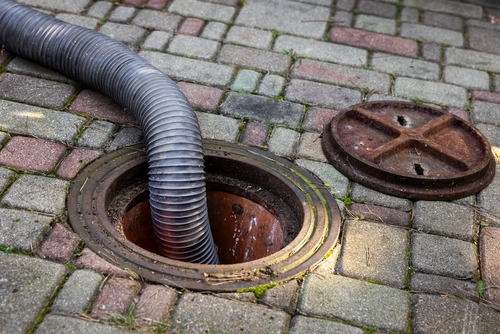Commercial Septic System Versus Residential Septic System
April 10, 2024 3:16 pm Leave your thoughtsWhen it comes to septic systems, there are two main types: commercial and residential. Both systems serve the same purpose of disposing of waste and wastewater in a safe and efficient manner, but they are designed to handle different volumes of waste and have different requirements.
Commercial Septic System
A commercial septic system is designed to handle a larger volume of waste than a residential system. This is because commercial properties, such as restaurants, hotels, and office buildings, have a higher number of occupants producing waste on a daily basis. As a result, commercial septic systems are typically larger in size and have a higher capacity for waste storage.
Commercial septic systems also have more complex designs to accommodate the higher volume of waste. They may include multiple tanks, larger drain fields, and more advanced filtration systems to ensure that the wastewater is properly treated before being released into the soil.
Maintenance of a commercial septic system is also more intensive than a residential system. Due to the higher volume of waste being produced, the tanks and filters need to be inspected and pumped more frequently to prevent backups or overflows. Regular maintenance is crucial to the proper functioning of a commercial septic system and can help prevent costly repairs in the future.
In addition, commercial septic systems are subject to more stringent regulations and codes than residential systems. This is because the potential for environmental contamination is higher with a commercial system due to the larger volume of waste being produced. Businesses that operate with a commercial septic system must adhere to these regulations to ensure that they are in compliance with local and state laws.
Residential Septic System
In contrast, a residential septic system is designed to serve a smaller number of people and handle a lower volume of waste. Most residential septic systems consist of a single tank that collects and treats wastewater before it is released into the drain field.
Maintenance of a residential septic system is less intensive than a commercial system. The tanks and filters need to be inspected and pumped on a regular basis, but the frequency is typically lower due to the lower volume of waste being produced. Regular maintenance is still important to prevent backups and ensure the proper functioning of the system.
Residential septic systems are subject to regulations and codes as well, but they are generally less stringent than those for commercial systems. This is because the potential for environmental contamination is lower with a residential system due to the smaller volume of waste being produced.
One important factor to consider when comparing commercial and residential septic systems is cost. Commercial septic systems are typically more expensive to install and maintain due to their larger size and more complex design. The cost of pumping and maintenance can also be higher for a commercial system, as the tanks and filters need to be inspected and serviced more frequently.
In contrast, residential septic systems are generally more affordable to install and maintain. The smaller size and simpler design of a residential system result in lower costs for pumping, maintenance, and repairs. Homeowners with a residential septic system may also be able to save money on their water bill by using less water to reduce the volume of waste being produced.
Summary
Both commercial and residential septic systems serve an important purpose in managing waste and wastewater in a safe and efficient manner. While commercial systems are designed to handle a larger volume of waste and have more complex requirements, residential systems are suitable for smaller households and have less stringent regulations. The choice between a commercial and residential septic system will depend on the specific needs and requirements of the property, as well as the budget for installation and maintenance. Proper maintenance and regular inspections are crucial for both types of systems to ensure their proper functioning and prevent costly repairs in the future.
Need a Septic Tank & Grease Trap Cleaning Company in Farmington, NH?
B.H. Cameron Septic Services LLC has been proudly serving the surrounding counties since 2005, providing efficient, cost-effective solutions to meet your residential or commercial septic system needs. We will help you develop your initial design and secure permits for installation or provide conversion to the city sewer system. We offer peace of mind with routine maintenance service after the job is done. When you contact B.H. Cameron Septic Services LLC, you will be greeted by one of our customer service staff. An experienced service technician will work directly with you to determine how we can help with your septic service or maintenance. Call us today!
Categorised in: Commercial Septic Pumping, Residential Septic Pumping, Septic System
This post was written by admin

